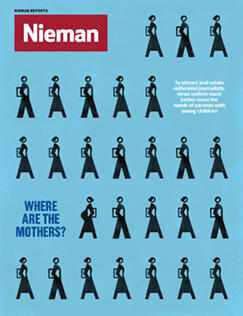
A Real Madrid merchandise stand outside of Estadio Santiago Bernabeu stadium prior a match between Real Madrid and Real Valladolid. Several football clubs and players across Europe are under investigation as a result of EIC.network's #FootballLeaks project
For over six months, an investigative team at the Spanish daily El Mundo has been waiting to hear whether they will face criminal prosecution for disobeying a legal injunction to stop publishing reports about alleged tax fraud by professional athletes in Europe. The Spanish injunction, issued in response to a complaint by a law firm representing top European soccer stars, was one of several against journalists in Spain, the U.K., and Germany related to Football Leaks, a cross-border project coordinated by the European Investigative Collaborations Network (EIC.network) that revealed tax evasion and corruption among clubs, league officials, agents, and some of the world’s best players.
Lawyers representing the athletes contend that the information was obtained by hacking and that publishing it is an invasion of privacy. Reporters Without Borders calls the injunction effort “an attempt to censor on a continental scale.”
Football Leaks, which consists of 1.9 terabytes of information and some 18.6 million documents, ranging from player contracts to emails revealing secret transfer fees and wages, is the largest leak in the history of sport. At the peak of the investigation, almost 100 journalists in 12 countries were working on the leaked material; in December of 2016, partners in the EIC.network—including El Mundo in Spain, Der Spiegel in Germany, Mediapart in France, The Sunday Times in the U.K., and several others—began publishing stories based on the leaked data. The project follows other high-profile leaks, the Pulitzer-winning Panama Papers most notably, which have been collaboratively investigated by journalists in many different countries.
The Panama Papers were investigated by more than 300 journalists from dozens of countries. But small-scale cross-border collaborations—such as that between Jakarta’s Tempo magazine and Taiwan’s The Reporter, revealing the human trafficking of Indonesian sailors on Taiwanese fishing vessels—can also have significant impact and reach. Organizations like the International Consortium of Investigative Journalists and the EIC.network are part of a growing trend in which some news outlets collaborate rather than compete on stories that might be too complex or ambitious for one newsroom to cover alone.
Since Edward Snowden’s revelations about the NSA’s illicit spying activities, journalists have grown increasingly worried about both governments and tech companies gaining access to their data and monitoring their communications, potentially compromising the security of whistleblowers and reporters themselves. The recent arrest of intelligence contractor Reality Winner, accused of leaking to The Intercept a classified NSA report about Russia’s hacking efforts in the days leading up to the 2016 election, has only heightened these fears.
At the EIC.network, we have come up with a decentralized and secure platform that allows journalists to launch their own cross-border investigative projects, free of government and corporate interference or surveillance. So taking inspiration from liquid democracy—also known as delegative democracies, where voters or personal delegates selected by voters vote directly on issues—we call our approach liquid investigations to reflect the idea of creating a secure, cooperative network with no hierarchical leadership, in which collaborators themselves decide who controls their data.
In any investigation, the security of data and conversations are major concerns. Investigative teams need to envisage threat scenarios by which authorities or other interested parties might try to gain access to data by hacking into journalists’ computers or phones. Storing all the data and communications for an investigation on a single platform offers would-be hackers an easy target. If that platform is compromised, so are the logistics of the entire investigative enterprise. If stored, that would include also the search histories of journalists and the documents they have accessed. Legal efforts can also be undertaken to block that platform’s activity, both before and during publication.
To minimize these risks, liquid investigations don’t put anything in the cloud; all email communication is done using PGP encryption; all our tools run on our own servers, behind multiple layers of security; and all investigations are carried out according to the following procedure.
At the start of an investigation, EIC.network partners meet face to face to brainstorm options on how to independently analyze the leaked material, without depositing the data in a centralized online format. These options include creating encrypted copies of the raw data and/or encrypted online channels for transferring information. Offering all media partners in our network equal access to the raw data is what sets our approach apart from other large-scale cross-border investigative projects that use centralized platforms and gatekeepers. With the EIC, control is distributed. We share administrative and control rights to our platforms among all the EIC.network partners.
During cross-border investigations, reporters need secure ways to refer to documents, either via a direct URL or by a unique identifier, rather than by sending documents back and forth by email. For the Football Leaks project, the Romanian Center for Investigative Journalism (RCI) constructed a secure search engine that allows journalists in our network to access and search large collections of documents. Called Hoover, the search tool (the code for which is open source under an MIT license; the code is available on GitHub and there is also a demo server) does not store search queries and does not record which journalists access which documents. As a result, no one can break into the platform to profile a journalist’s searches, and no administrator can monitor a journalist’s activities. The downside is, since the platform doesn’t store search logs and user activity, it cannot offer features like bookmarking documents or notification of new results on previous searches.
Since Hoover—which has a obscure URL and requires two-step verification from users, with access expiring every three hours—operates on a pan-national scale, if one national authority finds a legal means to shut it down, other EIC.network partners can make the search tool available from a different data center in a different country. This hasn’t happened yet, but the location of the hosting server changes from time to time anyway.
We have a separate platform for secure communications and information exchange. This follows a similar pattern to the Hoover search engine: EIC.network partners have access to the administration and user management and, if there is an emergency, the location of the hosting server can be quickly moved. This communications platform runs on Sandstorm.io, a platform hosting a number of open-source apps that are helpful to our collaboration, including Rocket.Chat (a chat server similar to Slack), Etherpad (which allows users to edit documents collaboratively in real-time), a Dropbox-like file storage server, and—most importantly—DokuWiki, wiki software that doesn’t require a database. Any user can launch these apps and invite and delegate access within the EIC network to as many people as necessary.
Wikis, along with annotations technology and a chatbot called Columbo, are part of the package of tools to enhance collaboration and communication among reporters working on an investigation. We use wikis to document and share everything from notes and research to questions for sources, interview transcripts, and drafts of the articles that come from our investigations. For the Football Leaks project alone, we created several hundred wiki and sub-wiki pages. Centralizing everything in one system means all our partner journalists can gain access and collaborate simultaneously. The wikis serve as an effective archive and a large-scale internal knowledge base that can be referenced in future investigations.
We are also experimenting with annotations technology that allows us to work directly on source documents, leaving notes, references to other findings, and tips other reporters might find useful. Columbo can alert collaborating reporters when new annotations are made, through a dedicated channel on the Rocket.Chat app on our communications platform.
Our toolkit was most recently brought to bear on #MaltaFiles, a pan-national collaboration published in May that details how the smallest country in the European Union has become a tax haven for figures connected to the Italian mafia, the Turkish elite, and Russian billionaires, with links to payday loan companies in the U.S. During the same week that #MaltaFiles stories started appearing—in EIC.network partner publications such as The Black Sea, El Mundo, L’Espresso in Italy, and Le Soir in Belgium—agents from the French Central Anti-Corruption and Financial Offenses Bureau raided the offices of the Paris Saint-Germain (PSG) Football Club as well as the homes of two of the club’s star players, Ángel Di María and Javier Pastore, in connection with our Football Leaks reporting. In June, prosecutors in Spain filed a lawsuit accusing Cristiano Ronaldo of defrauding authorities in the country of $16.5 million in unpaid taxes. Ronaldo’s representatives have denied the charges.
By continuing to refine the liquid investigations bundle and workflow, we hope our open-source set of tools will increase the potential of journalists to securely collaborate across borders even in ad-hoc groups and not necessarily through big costly networks.




